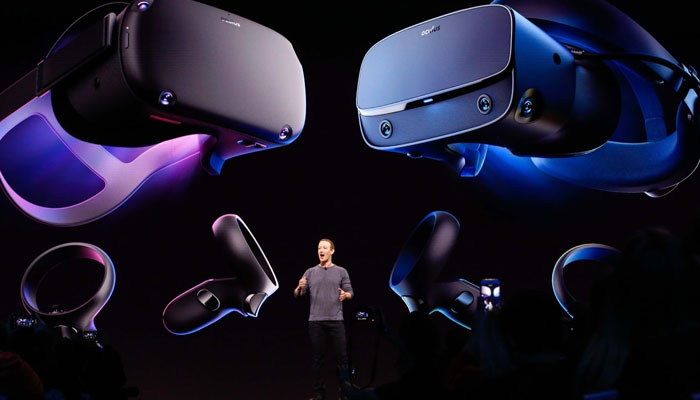Meta reduces required age for its Quest headsets from 13 to 10
Meta will implement parental time restrictions and more restrictions and breaks for preteens using VR headsets
Even though cutting-edge devices like Meta's virtual reality headsets have the potential to be revolutionary, the risks associated with cyber security make them particularly risky for kids.
Despite pressure from legislators to stop targeting younger users with its VR services, Facebook's parent company Meta intends to lower the minimum age for its virtual reality headsets from 13 to 10 years old.
Starting later this year, parents will be able to create accounts on Meta's Quest 2 and Quest 3 headsets for kids as young as 10, the company announced in a blog post on Friday.
According to the company, preteens will need their parents' consent before creating an account or downloading apps to a device.
The social media giant also promised that it will also "provide age-appropriate experiences," like suggesting appropriate apps, using the children's ages.
"There's a vast array of engaging and educational apps, games, and more across our platform, the majority of which are rated for ages 10 and up," Meta said in the post.
The company is pushing for a lower minimum age as social media companies like Meta and others come under increasing scrutiny for their effects on young users, including the possibility that they could have a negative mental health impact or send kids down dangerous content rabbit holes.
Concerns about teens and children using virtual reality (VR) and the "metaverse," a future version of the internet, have been specifically raised by parents and lawmakers.
According to CNN, two Democratic senators urged Meta to halt plans to make Horizon Worlds, the company's flagship VR app, available to teens between the ages of 13 and 17, claiming the technology could harm the users' physical and mental health.
In another letter to CEO Mark Zuckerberg, the senators Ed Markey of Massachusetts and Richard Blumenthal of Connecticut described Meta's proposal as "unacceptable" in light of the company's "record of failure to protect children and teens."
However, Meta moved ahead in April with its plan to let teenagers as young as 13 in the US and Canada use Horizon Worlds, drawing additional criticism from lawmakers and civil society organisations.
Last year, CNN reported parents' stories of how they struggled to find effective ways to protect their children after learning that they were watching violent and upsetting content in virtual reality.
In a blog post published on Friday, Meta announced parental time restrictions and breaks for preteens using VR headsets. Users under 13 have private accounts and app statuses, unless changed. Meta also aims to allow parents to cast content to TVs or phone screens.
Meta said that it will not serve ads to users under 13 and will allow parents to use their child's data for service improvement, while Horizon Worlds will remain restricted to users 13 and older in the US and Canada and 18 and older in Europe.
Meta's headset and Horizon Worlds aim for a next-generation internet but struggle to attract mainstream audiences.
-
Scientists discover rare form of 'magnets' that might surprise you
-
Humans may have 33 senses, not 5: New study challenges long-held science
-
Northern Lights: Calm conditions persist amid low space weather activity
-
SpaceX pivots from Mars plans to prioritize 2027 Moon landing
-
Dutch seismologist hints at 'surprise’ quake in coming days
-
SpaceX cleared for NASA Crew-12 launch after Falcon 9 review
-
Is dark matter real? New theory proposes it could be gravity behaving strangely
-
Shanghai Fusion ‘Artificial Sun’ achieves groundbreaking results with plasma control record












